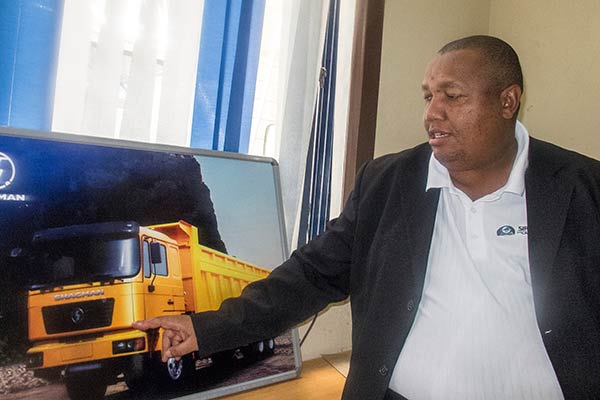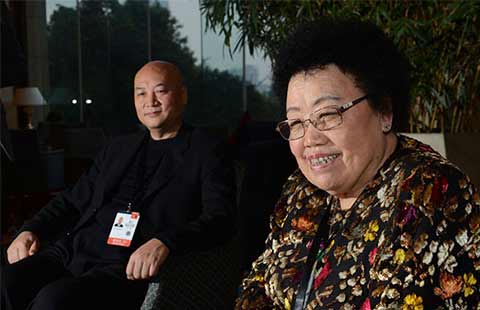Going heavy is good for AVIC
By LUCIE MORANGI (China Daily) Updated: 2015-12-14 08:01
 |
|
Andrew Mambo, general manager of sales at AVIC International Beijing's motor division in Kenya, said most of his customers buy trucks through asset financing.[Provided to China Daily] |
Even though Chinese-made construction equipment makers are gaining an increasing share of the African market, that does not mean their war is won. Their long-time European rivals and new entrants continue to make the market highly competitive.
In addition, the country allows the import of used vehicles, which produces a strong challenge to Shacman on price.
The country also allows second-hand vehicles with higher emissions, and their prices undercut those of new trucks with advanced technology. But Mambo says that the used cars come with no guarantee or manufacturers' warranty.
In a ceremony during which the AVIC-Shacman partnership was announced, Chen Zhe, manager of AVIC Beijing, said the venture brought the two a step closer to achieving their dream of building the foundation of Kenya's industrialization.
"What we hope to do is integrate China's industrialization experience locally. We are beginning by developing some local component manufacturing capacity that engages in the complete product assembly process locally."
In its partnership with the National Youth Service, AVIC International has stationed a training team at the institution to service and maintain trucks. It is also helping improve technical skills in vocational institutions through a program called Africa Tech Challenge. Ten of its participants will be given internship opportunities at the vehicle division.
Meshack Opwora, the deputy director in the Ministry of Education Science and Technology, said the joint venture is creating jobs and other opportunities for graduates from technical institutions.
AVIC International's technical challenge program is stimulating creativity, he said.
"You are widening creativity, making our youths employable and eradicating poverty," Opwora told company officials in a speech.
Mambo said jobs will continue to be created thanks to the growing construction sector. According to the Economic Survey 2015, output in the construction industry rose 13.1 percent last year, compared with 5.8 percent in 2013.
A report in May attributed the double-digit growth to a robust property market and big infrastructure projects such as the standard gauge railway from Nairobi to Mombasa.
Mambo said the company plans to exploit other strategies such as leasing soon.
- Law firms seek to boost Belt and Road
- Budget airlines turning faster, cheaper in China
- App designers look for Christmas cheer
- Growth hopes rise on key indicators
- Retailers' delight at Double 12 discounts
- Liquidity woes loom over A shares
- Santa's workshop in Yiwu goes electric
- Top 10 Internet companies in China

















